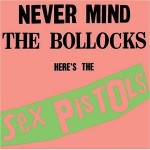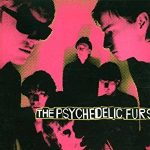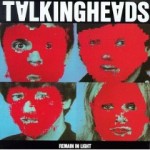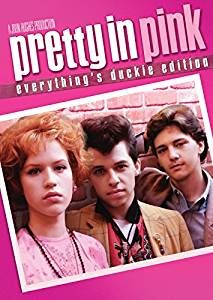From their post-punk beginnings to their MTV-driven success, boosted popularity from the Pretty in Pink soundtrack, and extended touring reunion, there have been two constants for the Psychedelic Furs: brothers Richard Butler on lead vocals and Tim Butler on bass guitar.
The Psychedelic Furs started in 1977, and they released their first album in 1980. The rougher edge of their debut was softened for their second album, 1981’s Talk Talk Talk, which included the original version of the song “Pretty in Pink”, a re-recording of which later became part of the soundtrack of the movie of the same name. They hit the US Top 40 with “Love My Way” in 1982, and followed up with songs like “Heaven”, “The Ghost in You”, and “Heartbreak Beat”. The band broke up for most of the 1990’s, but eventually reunited and now continues to tour.
This interview with Tim Butler was for a preview article for noozhawk.com for the Psychedelic Furs concert on 3/9/18 at the Fremont Theater in San Luis Obispo. It was done by phone on 2/28/18.
Jeff Moehlis: The Psychedelic Furs recently turned 40 years old. What was the vision for the band when it first formed?
Tim Butler: When we first formed there was no vision. We just wanted to have a good time and drink and party. Richard and I had just seen the Sex Pistols at the 100 Club in London, and we thought, “Wow, maybe we could do that.”
We talked about forming a band, and Richard said, “What do you want to play?” So I said, “Bass”, and he said, “Cool, get a bass and we’ll form a band.” We didn’t really have any sort of future plan. As I said, it was just to have a good time.
Most people, when they start bands, they don’t think, “Hey, we’re going to be big. We’re going to last 40 years.” They just take it a gig at a time, having fun playing music.
JM: That’s probably the best reason to do it, right?
TB: Yeah, I mean, once it stops being fun you might as well give up.

JM: It seems that so many bands started after seeing the Sex Pistols, you guys included. What do you remember about that show? What really stuck out to you? The attitude?
TB: Yeah, at that time the music business was heavily into disco and prog rock. Punk came along, and the Sex Pistols in particular, and just kicked the music business with the attitude and the simplicity of the music. People could look at them and think, “Wow, maybe I could do that? I don’t have to know how to do a 15 minute guitar solo with four key changes to form a band.” It opened it up for more people. At that time in England there were so many young people unemployed, which I think helped the growth of punk, because the only way to make a living and get out of England was to try to form a band and get out of there. Because it was in completely dire straits.
JM: What are your reflections on the early Psychedelic Furs albums?
TB: For me, the first three albums showed the most growth in our musical ability. For the first album we could barely play our instruments, but we had the attitude, and we’d go onstage and do a 20 minute jam around “Imitation of Christ”. Maybe after a few times of doing that another song would come out of the jamming. By the time we got to the second and third albums, I think we had learned how to write songs, how to structure them. We were a bit more melodic.
JM: The first two albums were produced by Steve Lillywhite, and the third was produced by Todd Rundgren – two very notable producers. What were they like as producers for you?

TB: They were great. For our first album, Steve basically went in and said, “What I want to do is just make this album like it’s a live show.” He came to see us playing a live show before we went in there, and he was blown away by, I guess, the energy and the attitude, and he didn’t want to lose that. There was very little overdubbing. It was basically live. With the second album, there was a bit more talking about the song structures and changing them around and stuff like that.
By the time we got to Todd… Todd is a great disciplinarian. Before, with Steve, our guitar players might go in there and do three guitar parts apiece, and then in the mixing they’d put them together. But Todd was like, “No, no, no, I’m not going to do that. You can record three guitar solos or three guitar parts, and then pick out of the three the parts you want to use, and then record those on one track.” Because it would make it easier for him in the mixing. It made us a lot more disciplined.
JM: I’m pretty sure that, as a pre-teenager in the Midwest, I first became aware of the Psychedelic Furs when “Love My Way” became a hit and was played on MTV. How did that song come together?
TB: Basically it was from jamming around. It was one of those jams that we weren’t too sure of. We played it over and over. We played it to Todd, and he said, “Wow, that should be the first single off of Forever Now. The keyboard player, a guy called Ed Buller, came up with the marimba part, which was originally on keyboards – keyboards sounding like a marimba. That was basically it. That was the big hook. On the rhythm there’s no guitar, it’s just got marimba, which I think made it stick out from a lot of other stuff. People hadn’t really been exposed to the marimba before, and to hear that and to see the video of Vince [Ely] playing it, it piqued their interest.

JM: What are your thoughts on the early days of MTV?
TB: When we first started out, our first tour over here wasn’t even nationwide yet. It was only in specific markets. But I think as MTV grew, it got bands out to the attention of more people in America, who maybe couldn’t get to see the band in concert. So it got us a pre-made market when we’d hit an area. They’d see us on MTV and they’d know sort of what we were about. It was really good for music.
Now it’s pretty bad. There’s very little music on it – it’s all stupid TV shows, like reality-type things. But back in the day I think it really helped break bands.
JM: Do you have any memories from your first tour of America that you’re willing to share?
TB: [laughs] I remember at the end of it… Well, first of all we were told by the record company not to tour the album. They didn’t think America was ready for us. We came over despite CBS’s ideas, and we toured for five months in the back of a minivan. At the end of it we were almost dead. We wanted to go home.

That’s when CBS realized that we were starting to break, and they said, “We want you two weeks on tour with Talking Heads”, on the Remain in Light tour, and we were like, “No, we’re so tired. We’re so tired, we want to go home.” They said, “Well, what about if we get you a tour bus and we bring your girlfriends over?” And we were like, “OK, we’ll do it if you do that.” They flew our girlfriends over and got us a real tour bus for the first time. So we went out for another two weeks.
JM: One of the band’s best-known songs is “Pretty in Pink”. How did the original version of that song come together? Did it also grow out of a jam like “Love My Way”?
TB: Yeah, pretty much. It was Vince, myself, John [Ashton], and Richard jamming around. I think Roger [Morris] and Duncan [Kilburn] had gone off home, because they used to share a ride back home together because they lived in the same area. So, yeah, that basically came out of a jam.
JM: How did you get involved with the movie Pretty in Pink?

TB: The first thing we knew about it was being approached to re-record the song “Pretty in Pink”. They wanted somebody to re-record it. They said the guitars were slightly out of tune, which I don’t see myself. But we said, “If it needs to be re-recorded, we’ll do it. It’s our song.” John Hughes had written the movie script around our song. He’d written it for Molly Ringwald. So he said, “OK, go in and re-record it.” Now, the re-recording isn’t as good as the original, but, you know, at least it’s us doing it.
JM: The band has included you and your brother throughout its whole existence, and it doesn’t always work out when brothers are in a band together. What’s the good and the bad about being in a band with your brother?
TB: Well, early on there was a bit of sibling rivalry. We argued a lot about our relative places in the band. But after a while the sibling rivalry sort of goes away, and you both realize that you both have as important a part to play in the band. So nowadays we get on just fine. There were rough patches in the ’80’s, but I think that was fueled by maybe drink and drugs [laughs]. I can’t understand all these brothers – the Davies brothers and the Gallagher brothers – splitting up and not talking. Blood is thicker than rock ‘n’ roll.
JM: I’ve always gotten a bit of a David Bowie vibe from the music of the Psychedelic Furs. Did you ever cross paths with him over the years?
TB: Several times. One of the first times we met him we were playing in Harrah in New York in our first album tour. We’d finished the set, and we didn’t used to do encores. But we’d finished the set and David Bowie came bursting into the dressing room with David Byrne. They introduced themselves, and David Bowie said, “David Byrne and I were just arguing over who’s going to produce your second album.” That was the first time we met him – we met him other times over the years – but he said, “Why don’t you do an encore?” And Richard said, “Well, we don’t usually do encores.” And he goes, “Go on, go and do another one!” So we went out and we did “India” [laughs]. A request from David Bowie.
JM: You don’t say no to that, right?
TB: No.
JM: What advice would you give to an aspiring musician?
TB: Keep the belief in yourself going. Don’t be swayed. A lot of bands get picked up by record companies and they’re sort of changed and molded by the record company to what the record company thinks you should be, and not what you actually want to be. So stay true to your original thoughts and ideas on how you want to be. If it’s good, it’ll work and you’ll make it. And if it’s not, then bad luck. But don’t change because the record company tells you that something will make it a hit or not. You’re going to totally mess up your own confidence in yourself, and in the long run you won’t feel good about it.
JM: What’s in the works for the band? I hear that you might have some new recordings – is there talk of a new album, perhaps?
TB: Yes, we actually just finished up some rehearsals for it, and we’re going to do this leg of the tour and then we’re going to go in and do some recording next month. Then we’re back out again. We’ll hopefully have it out by the end of this year or early next year. We are working on an album.
JM: Can you give us a preview of what we can look forward to for the new album? Will it be similar to the older stuff or a new direction?
TB: It’ll be the Furs with a new direction, I’ll say that [laughs]. It’ll definitely be recognizable as the Furs. You can’t not be with Richard singing. Of course you get influenced by what other people are doing musically, from different genres. So that’s all taken in and put into the grinder. I think it’s going to be a great album.
JM: For people trying to decide if they should go to the show, can you tell them what they can look forward to?
TB: They should definitely come to it. People who have never seen us before tend to be surprised by what a powerful band we are. A lot of people who just hear songs like “Ghost in You” or “Love My Way”, they get the impression that we’re sort of a lightweight band. But if you come and see us live, we’re quite a heavy band.
JM: Well, it seems fitting that you’re a powerful band since you started, at least in part, because of the Sex Pistols.
TB: Yeah, I mean songs like “Love My Way” and “Ghost in You” are the only light songs. And they’re not particularly light, but they’re not as dark and, dare I say, rock ‘n’ roll-y as most of the set.


Discussion
No comments for “Interview: Tim Butler”